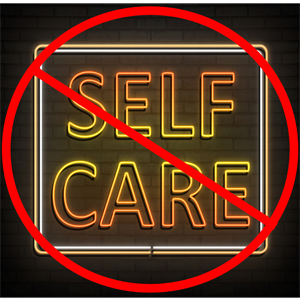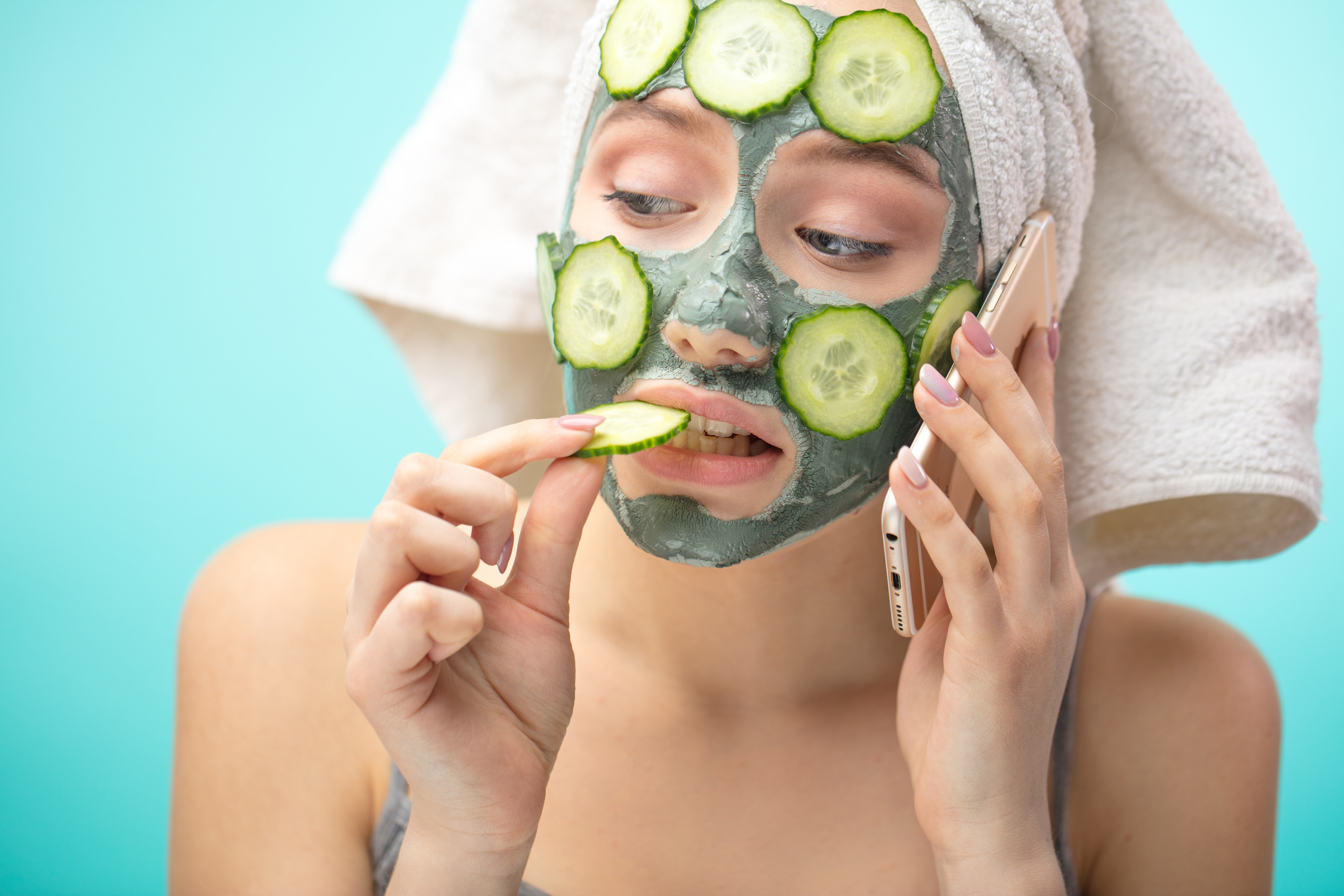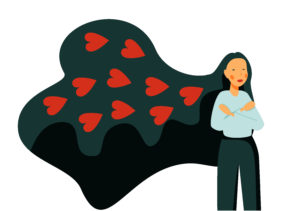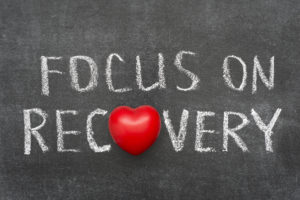The Uncaring Side of Self Care–Looking to Recovery Instead
 It will be November 2, 2020 when this blog posts. One day before possibly the most important election of our lives. Many of us have already voted by mail, by drop box, by early in-person voting. Some of us have made phone calls, rung doorbells, asked anyone and everyone about their plans to register and vote.
It will be November 2, 2020 when this blog posts. One day before possibly the most important election of our lives. Many of us have already voted by mail, by drop box, by early in-person voting. Some of us have made phone calls, rung doorbells, asked anyone and everyone about their plans to register and vote.
Others have made donations, sometimes more than we could comfortably afford, to candidates up and down the ballot in our own states and in those called “battleground.”
Our country itself has been a battleground, and we are all to one degree or another battle weary.
Yet, unlike other election years, we will most probably not find out who the next president will be for several days—maybe even weeks. And no matter who is declared the victor, we will all need to buckle up for claims of voter interference, accusations of voter fraud, and even violence. The battle will not be over tomorrow.
Even the Word “Unprecedented” Feels Old
Add to this tumult the COVID—the only entity on the planet that is not tired. After a short pull back, the pandemic is again gathering up speed.
Unprecedented times. Yes. But while we’re trying to navigate this new, brutally challenging territory, the very word “unprecedented” feels old and tired too.
I’m focusing another few other words today: Self-Care and Recovery.
Let’s examine the notion of self-care first. Some women swear by it.
I’ve always had a problem with the term—more specifically, with what the term has come to symbolize.
I’m certainly of the mind that it’s important to take care of one’s self! I’m done with putting everybody else’s needs before my own—not because I’m selfish (which I don’t think I am) but because unless I’m in a good place, I cannot be of any use to myself or anyone else!
The term “self-care” irritates me, though, and I’ve been struggling with why it rubs me the wrong way. It feels like the words have been hijacked by those in the profit-making world who want to sell women things, encourage us to feel like we’re not good enough (all under the guise of empowerment), and make us chase yet another unlikely standard of health and beauty that keep women in the same “less than” position that we’ve occupied for too long.
YAY Meg Kissack!
I doubted myself and my thoughts and feelings (does that sound familiar to anyone?) and began raising my self-care concerns with friends—and fishing around the internet, where I found a new shero. Her name is Meg Kissack. She lives in Liverpool, England, and writes a wonderfully inspiring blog for women called That Hummingbird Life. I happened upon one of her posts aptly entitled: “The Problem with Self-Care” .
Kissack is funny, bold and unapologetic about who she is and in what she believes (and she happens to curse like a sailor). Kissack believes that the self-care movement has been co-opted “by corporations and mainstream media which uses it to sell us more sh*t we don’t need.”
 “This new #self-care trend tends to do one of two things,” Kissack claims:
“This new #self-care trend tends to do one of two things,” Kissack claims:
- Makes you feel sh*t about yourself because self-care looks like something that has to be beautiful and impressive. It seems to be something exclusively for white, middle-class, skinny, yoga-doing, green-smoothie-drinking and law-of-attraction believing women…
- It tempts you into believing that if you just got on the green smoothie wagon, everything in your life would be okay. …”
Quick, Easy Fixes Are Not the Answers
Kissack wasn’t always so anti-self-care: “I used to think the whole notion of self-care was revolutionary in the way that it was about reclaiming yourself, and it was a radical act to look after yourself in a world that tries to convince you you’re not good enough at every turn you make …
 Now I find myself arguing that the notion of self-care is no longer a revolutionary act but something that is becoming yet another tool to further oppress women.”
Now I find myself arguing that the notion of self-care is no longer a revolutionary act but something that is becoming yet another tool to further oppress women.”
And I just LOVE this: “Because buying a new gorgeous mug and expensive tea, brewing said cup of tea in said gorgeous mug and putting together in a flat lay of candles, notebooks and pens to photograph on Instagram to show people you’re having a #selfcaresunday is not f*cking self-care.”
Now tell us what you really think, Kissack!
(Kissack is not the only one pushing back against this new trend in self-care. Just this past Friday, the New York Times “In Her Words” column published Hannah Seligson’s interview with Leigh Stein, the author of on the novel Self Care, in which she takes on “the monetization of self-care,” a $10 billion industry.)
I don’t know about you, but I have found myself chasing these instant fixes—and money drains. Maybe a mani-pedi would do the trick, I’ve thought. A facial. A massage (yum). Maybe a nice new outfit or something lovely for my home.
There is a place for sprucing up, for sure, but real self-care is not as easily attained as taking out the charge card and “improving” our outer image.
Recovery Recovery Recovery
So what’s the alternative? If not the trendy self-care options, what is there for us women to do? Kissack goes back to the “roots” of what the self-care movement was all about, and she suggests it stems from “self-preservation.” Yes … and …
I’d like to offer an alternative word: recovery.

What’s the first thing that comes to mind when you hear the word recovery?
I imagine, most people go to health issues—recovering from an illness, a surgery, a fall.
Those of us who have addictions or who are close to someone who does, might think AA. I thank Sherry Danner from September’s interview for introducing me to the Rational Recovery program. Rational Recovery. I like the sound of that.
Recovery is not just for surgery, illness, or addiction. It works well, and I am going to suggest, is necessary for our daily lives.
 Athletes can teach us a great deal about the importance of recovery. Elite athlete Christie Aschwanden wrote in Men’s Health:
Athletes can teach us a great deal about the importance of recovery. Elite athlete Christie Aschwanden wrote in Men’s Health:
“I’ve learned that it’s not enough to just go hard. To make the biggest gains, you also have to optimize rest. That’s because it’s not the training itself that strengthens your muscles and bolsters your endurance. Instead, it’s the adaptations your body makes in response to that training, and these adaptations happen during the recovery period between workouts.”
Balance Balance Balance
Women are masters at “going hard.” We put our hearts and great effort into so much of what we do. We often take on way too many responsibilities and can have trouble saying “no”—even when we’re stretched beyond our limits. Call it cultural influence, socialization—whatever—the result is still the same. We’re tired—and often resentful.
 Yes. We know exactly how to go hard but could use some help with the recovery phase. We could use some help with balance. Placing less emphasis on the outside and nurturing what’s within. Recovery entails taking a break from (or even giving up) the endless chase. It involves breathing and slowing down.
Yes. We know exactly how to go hard but could use some help with the recovery phase. We could use some help with balance. Placing less emphasis on the outside and nurturing what’s within. Recovery entails taking a break from (or even giving up) the endless chase. It involves breathing and slowing down.
“The Answer Is Consistently a Drumbeat of ‘Do Less, Do Less'”
My dear friend and beautiful writer Gabriella Souza and I have been talking a lot about recovery lately. I’d love to share some of her thoughts:
“I know I need recovery the most when my thoughts swirl so intensely that if I ask myself the question, “What do you need right now?” I can’t even answer it. When I slow down, open up my innermost self, and ask myself the same question, the answer is consistently a drumbeat of “Do less, do less.'”
“In my creative work, I value discipline and follow a strict writing schedule. But even then, recovery is absolutely necessary—so much so that I schedule week-long breaks every three months to ensure that I’m getting the rest I need. I always know I need to take a break when the thought of taking one absolutely terrifies me. But once I do so, I find that the less I do, the more quickly and clearly the creativity comes. Doing less actually allows me to do more with my work.”
Amen, Gabriella! While recovery itself is a gentle process, we often don’t listen to its tender calling. Only when the need for recovery bangs on our door, do we open up and let it in.
We Will All Do Well to Put Recovery on the Top of Our Lists!
What if we decided to be rational about our recovery—deliberate, judicious, and wise? We are full of wisdom, aren’t we ladies? And have no problem being deliberate and judicious when making choices that affect others. Why not give the same consideration to our own glorious selves?
Why not have a softer touch and gift our bodies, hearts, and minds the time to adapt—and grow—in the healthiest of ways?
Even under normal circumstances—anybody remember those?—recovery went a long way. Today, tomorrow, and for the foreseeable future, we will all do well to put recovery on the top of our lists!
As always, I’d love to hear your thoughts!! Do you think self-care and recovery differ, and if so, how?
For me, recovery includes making time for long walks (and talking to ducks), singing along with oldies that I blast on YouTube, writing about issues and people that carry meaning for me, talking with friends, meditating, and reading while taking long baths.)
What do you do—or will begin to do—to support your recovery?
Please leave a comment or send me an email.
See you November 16th!
XOXO
Diane



Thank you for making me laugh, Diane, with your early statement that the coronavirus is the only entity that’s not tired! I needed that :))
I agree that self-care has been co-opted & become yet another profit-making commodity that feeds off our insecurities. It’s a sign of progress that we recognize this model for what it is & is not. Yes! to reclaiming the original intention while calling out the hijacking :)) I love the use of the word recovery; coming back to ourselves after exhaustive straying, to rest, take stock & figure out what isn’t serving us.
In this time of overwhelm on steroids I find myself feeling an urgent queasiness when I need to step away from whatever I’m involved with, and come back to it later…if at all.
I agree with so much of what Kathie has said. I was also thinking about self-love as an alternative to self-care. May we all be as kind & nurturing with ourselves as we are to others.
Big ups to you, Diane, for another timely post, & for introducing us to this canny Liverpudlian :))
Thanks for making me laugh, Sarita: “overwhelm on steroids!” And love how you describe recovery: “coming back to ourselves after exhaustive straying, to rest, take stock & figure out what isn’t serving us.” Yes, to Kathie and self-love and yes to being as “kind and nurturing to ourselves as we are to others.”
YES! I’m all in with “self-love” replacing “self-care!” I love it when we collectively challenge the words that we use against ourselves due to cultural messaging. I tossed “self-care” out when I realized all it created was another to-do list (bubble bath! candles!) and another way to measure how I was failing. Thanks for helping us cut though the BS and truly love ourselves. That’s the higher goal.
“Another way to measure how I was failing.” Yes, Sherry! How bubble bath and candles can cause us stress! Self-love–our higher goal! Love that!
Ha ha ‘bubble bath & candles causing stress’
XO
Love this one, Diane. I almost never take a break, despite the fact that every day, I feel how much I want to. Thank you for this. XO
Thank you, Alison! And please be good to yourself and take that needed time to recover! XO
I love this Diane and it’s spot on. The best things I have ever done for myself have nothing to do with beauty products or shopping. Being in nature in whatever way possible is number one for me. Yoga, meditation, reading, the AMS Writing Group (I love you ladies!), talking with friends, and sometime doing absolutely nothing. Oh, and dogs. 🙂
Thank you for articulating this for me and for the intro to Meg. I’m really looking forward to checking her blog out.
xoxo
Thanks Julie!! Love your list of things that nurture you!! Of course, dogs!!
Diane,
I so needed these words today. So much. And yes to the need for recovery. And self- love.
Thank you for this. I want to read Meg!
I feel so blessed that we crossed paths.
xo
DeAnna
I am soooo glad, DeAnna! Meg is great! And I feel the same about crossing paths!!
Thanks for your encouragement during this election season. I am fascinated with this article since a good friend of mine And I have been experimenting with using the word self-love instead of self-care, for many of the same reasons you mentioned. You hit most of the marks that we i’ve been discussing; Often being told that you need to “self-care” gives an already burdened person more to do! Allowing ourselves to recover makes so much sense. I love your use of the word recovery as it gets to the heart of the matter. Also, for my work as a Doula, I have been studying the facia and how the facia needs rest in order to work optimally. Many connections here for my recent journey.
Finally, thanks for introducing me to Meg! I love a strong, smart woman who swears!
Warmly,
Kathie
P.S.: You’re amazing Diane! I look forward to and I’m always eager to read your posts! ♥️xo
Thank you, Kathie!!
I LOVE using “self-love!” There are so many options still uncorrupted–yay!!
And love the reference to the facia–thanks for sharing that connection!
This is such a great post! I will forward on to Leigh Stein – I “know” her and appreciate her work. She will love knowing you read her!
Here’s to Recovery! Whatever we call it – we need to be on our own side.
Thanks, Nicky! Yes, “whatever we call it–we need it to be on our side!”
We need recovery from the word ‘Unprecedented.’
What I like about the Recovery concept is its balancing of intense work with intentional rest, rather than trying to find a middle ground, which for too many of us means foggy thinking and living.
Another great post, Diane.
Thank you, Greta! LOVE “balancing of intense work with intentional rest!” That middle ground can be foggy territory and leave us feel uncommitted. Thanks for pointing that out!
Thanks Diane for reframing the 3Rs for me and all of US in this well-written, timely and relatable post.
Thank you, Fran!! I appreciate the comment!
LOVE this and the idea that Recovery is the new self care. After reading this I can now see how the words self care can actually feel separate from it’s true purpose. Great take and TIMELY!
Thanks so much Jeanne!! From the guru of YES, that means a lot!!